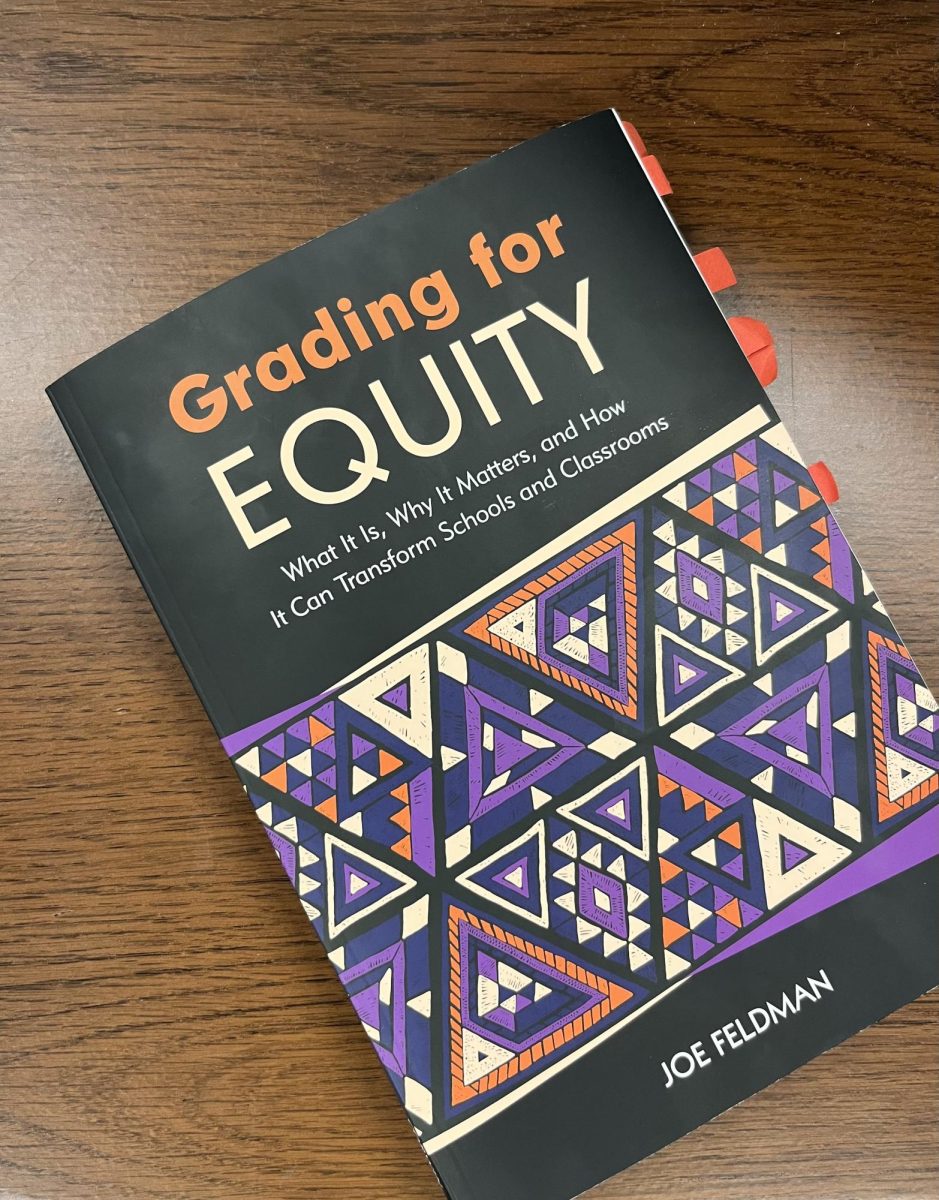With 68% of teachers holding master’s degrees, Pleasant Valley’s teachers are well educated in their fields. However, a teacher’s training never ends, and PV’s training this year has garnered many complaints.
At the beginning of the year, PVHS teachers chose one of five books to read as part of their required professional development for the first semester. All of the options cover the topic of using different grading methods, and teachers gather each month to discuss what they have read.
“I don’t think that it’s bad for us to all be exposed to new kinds of thinking; I think it’s good for everyone to be learners for life. In those ways, I think it’s perfectly fine and acceptable to ask us to read the book,” commented math teacher Shelli Paustian.
While continued learning is beneficial for teachers, many teachers are in disagreement with the books’ suggestions or implications. Extending late work policies, giving partial credit for missing or plagiarized work and moving toward a standards-based grading system are all common themes in the books.
While standards-based grading is designed to make school more focused on learning rather than achieving a good grade, many teachers believe this type of grading would take away the incentive for students to participate in class and complete their work.
English teacher Lynne Lundberg used to implement a standards-based grading system at a previous school. “I had to completely change the way I ran the classroom; it almost became a contract grading situation. It was hard to hold a class discussion when everybody knew that they could get around to the reading next week,” explained Lundberg.
Not only do these books teach controversial grading topics, but some teachers are also skeptical of the writings’ relevance. .
Paustian pointed out that “Grading Smarter Not Harder” by Myron Dueck, the book many math teachers are reading, was written over 10 years ago by an author who only taught history. This creates issues because today’s education is more technological compared to methods 10 years ago. Since the time the book was published, classrooms have changed dramatically and many argue that different subjects require different policies.
For example, math classes continually build off of previous topics, making extended late work policies much harder to implement than they may be in a history class that can jump to new topics without relying on previous knowledge. Other subjects, like English courses, require students to complete drafts of their work, which teachers believe to be a crucial step in the learning process.
“Writing is more about the process than the product. If students do not participate in the process, they are missing out on the intended learning,” journalism teacher Maureen Dyer said.
Dyer believes removing academic penalties from late work will inadvertently remove a student’s motivation to complete that work on time. “It’s not just about the content itself. Educators are teaching students the soft skills needed to be successful adults and employees. Some of the more modern pedagogical ideas these books bring up do not take the importance of those soft skills into account,” she said.
Dyer isn’t the only teacher who feels this way, nor are late work policies the only controversial focus in the assigned books. Standards-based grading may make classrooms harder to manage because the late work policies have the potential to create loads of late submissions for teachers to grade at the end of a semester.
One of the books some teachers are required to read, “Grading for Equity,” by Joe Feldman, suggests that teachers shouldn’t give zeros or any penalty for late work. “When we don’t penalize for late work, we send the message that learning has a more flexible timeline and pace, and it’s better to produce high-quality work submitted after the deadline than to cut learning short,” wrote Feldman.
Teachers are skeptical about these strategies, and these practices could cause much more work for staff.
“Teachers are expected to do more and more with less and less backup in a lot of ways,” expressed Lundberg. “If this book’s practices that I’ve read about so far are put into practice, it means a lot of extra work for me.”
Luckily for those who fear the negative implications of such practices, they aren’t being mandated any time soon.
Barb Pischke, a PV math teacher, sees the benefits of such books being studied. “We should give everybody a chance to read, to discuss and just take a step back to think about some new things,” she explained.
Some faculty believe these books give teachers a chance to explore new policies and strategies. But others are left hoping the policies they feel so strongly about will not become future mandates and yet another point of contention in the life of a modern educator.









